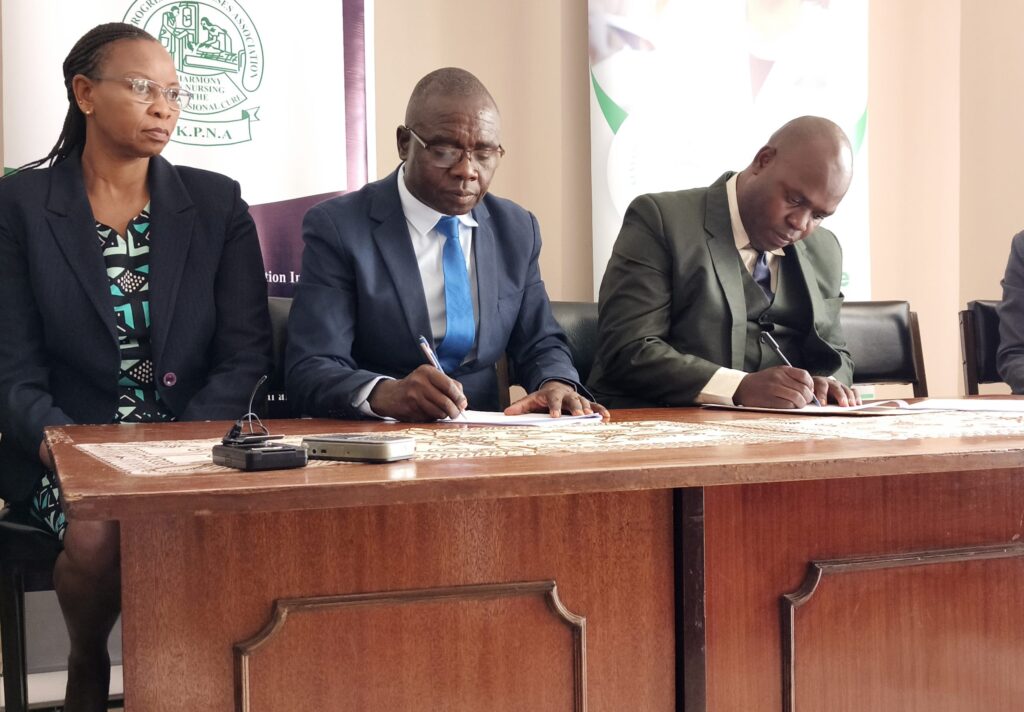By Melisa Mong’ina
KenyanNurse has signed a memorandum of understanding (MOU) with the Kenya Progressive Nurses Association (KPNA) to strengthen professional development, expand training opportunities, and create global career pathways for Kenyan nurses.
Kenya trains more than 10,000 nurses annually through 164 accredited institutions, yet the healthcare system absorbs only about 2,000 through internships. The rest, though highly skilled, face unemployment. KenyanNurse seeks to bridge this gap by preparing nurses for international opportunities.

Edwin Simiyu, CEO of KenyanNurse, emphasized that a key focus will be supporting nurses to sit for the NCLEX exam, a global professional test required in the United States, Canada, and Australia.
“We have established a system that prepares nurses for the NCLEX exam, which is essential for those seeking to work abroad,” said Mr. Simiyu.
The MOU also includes English proficiency training, mentorship programs, short courses, and referral support for advanced studies overseas. It aims to strengthen diaspora linkages so that skills gained abroad can benefit the local health system.
“We are creating systems that enable nurses to pass the required exams and access global opportunities. Beyond this, we also provide clinical skills training that equips professionals to save lives,” added Mr. Simiyu.
Despite being the backbone of the health workforce, nurses have long been underrepresented in policy matters. The new partnership intends to amplify their voices in shaping health policy.
“Through this collaboration, we are combining strengths to ensure nurses are heard. We will also organize conferences and forums to highlight their contributions,” Mr. Simiyu noted.
Hon. Michael Nyongesa, Chair of KPNA, announced that training will be devolved to counties to reduce costs for members, stressing that empowered nurses are vital to Kenya’s health sector.
“If nurses are in Busia, we will train them there. If they are in Kwale, we will go to Kwale. This makes training more affordable and accessible. When you empower a nurse, you empower healthcare in this country,” he said, pointing out that nurses serve as the first point of contact for up to 80 percent of patients in Kenyan hospitals.
Globally, there is a shortage of more than five million nurses. The MOU positions Kenya to contribute to this demand while uplifting its workforce.
“This is a solution for those not absorbed locally. By preparing and supporting them, we can ensure no nurse is left behind,” Hon. Nyongesa affirmed.
